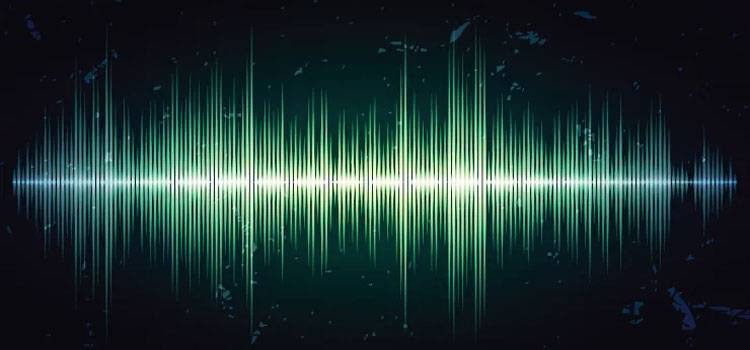
Unfortunately, Pakistan’s elite class has often resorted to divisive tactics by misusing the media, and now audio tapes, to gain power. In return, the media has actively participated in this power struggle – because they seek to gain financial benefits and privileges for themselves. Both the mainstream and social media feed the masses with bias and propoganda under the guise of news and analysis to undermine any opposition.
Audio leaks add a shady twist to the country's power dynamics. The disclosed private telephone conversations are being used to exploit not just political opponents but also government entities and public office holders. Even judges and their family members are not spared. According to an SRO issued on May 19, 2023, such audio leaks have damaged public confidence, and the general public has expressed grave worries about the independence, impartiality, and integrity of CJPs and justices of superior courts.
Zahid Hussain, a senior journalist, claimed that the government and agencies use audio tapes to achieve political goals.
The government appears to have no issue spying on its opponents. For instance, when PM Shehbaz Sharif's recording was leaked, Rana Sanaullah downplayed the situation in an interview with Geo News, claiming, "I don't think we should take them so seriously since this is so common". Similarly, Information Minister Marriyum Aurangzeb said the audio leaks were "proof that nothing illegal happened". But, when audio tapes related to the opposition leaders and judges were leaked, the government filed a reference and demanded strict action.
However, this raises questions regarding the function of the intelligence services as well as the authenticity of audio leaks. Since, according to a senior military officer in Inter-Service Public Relations, "The entire Prime Minister Office is looked after by the IB in terms of security". Therefore, voices are raised against weaknesses in the cyber security of the nation's highest offices. PTI Chairman Imran Khan stated that some of the recent leaked calls were made via a secure phone line in the prime minister’s office. He added that this was a serious breach of privacy guaranteed under Article 14 of the constitution. Thus the increasing number of audio leaks is a sign of a vulnerable state that is unable to uphold citizens' fundamental human and democratic rights.
It is hard for people to tell if the audio leaks are authentic. Giacopuzzi, a cyber attack investigator, claimed that "we need to question everything" in the modern world, especially if it originates from the social media. Such leaks are a major threat to our society. They could destroy the entire political system and damage state institutions.
To put a stop to these numerous audio leaks, the political leaders must agree on a plan of action to end this violation of democratic fundamental human rights. It remains to be seen for how much longer the dirty game of political gimmickry continues in this manner.
Audio leaks add a shady twist to the country's power dynamics. The disclosed private telephone conversations are being used to exploit not just political opponents but also government entities and public office holders. Even judges and their family members are not spared. According to an SRO issued on May 19, 2023, such audio leaks have damaged public confidence, and the general public has expressed grave worries about the independence, impartiality, and integrity of CJPs and justices of superior courts.
Zahid Hussain, a senior journalist, claimed that the government and agencies use audio tapes to achieve political goals.
The government appears to have no issue spying on its opponents. For instance, when PM Shehbaz Sharif's recording was leaked, Rana Sanaullah downplayed the situation in an interview with Geo News, claiming, "I don't think we should take them so seriously since this is so common". Similarly, Information Minister Marriyum Aurangzeb said the audio leaks were "proof that nothing illegal happened". But, when audio tapes related to the opposition leaders and judges were leaked, the government filed a reference and demanded strict action.
However, this raises questions regarding the function of the intelligence services as well as the authenticity of audio leaks. Since, according to a senior military officer in Inter-Service Public Relations, "The entire Prime Minister Office is looked after by the IB in terms of security". Therefore, voices are raised against weaknesses in the cyber security of the nation's highest offices. PTI Chairman Imran Khan stated that some of the recent leaked calls were made via a secure phone line in the prime minister’s office. He added that this was a serious breach of privacy guaranteed under Article 14 of the constitution. Thus the increasing number of audio leaks is a sign of a vulnerable state that is unable to uphold citizens' fundamental human and democratic rights.
It is hard for people to tell if the audio leaks are authentic. Giacopuzzi, a cyber attack investigator, claimed that "we need to question everything" in the modern world, especially if it originates from the social media. Such leaks are a major threat to our society. They could destroy the entire political system and damage state institutions.
To put a stop to these numerous audio leaks, the political leaders must agree on a plan of action to end this violation of democratic fundamental human rights. It remains to be seen for how much longer the dirty game of political gimmickry continues in this manner.

